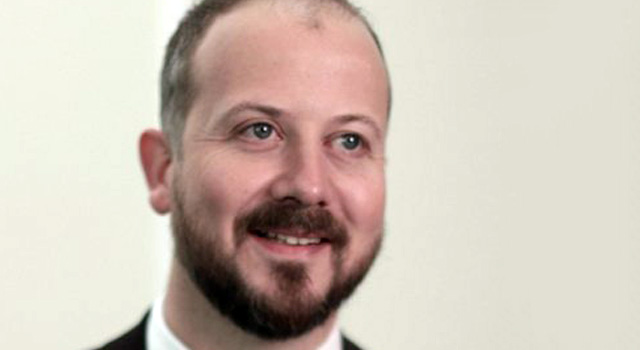
SABC chair Zandile Tshabalala is trying to create doubt in the public domain to avoid suspension, the Democratic Alliance said on Friday.
“Tshabalala’s strategy is abundantly clear. She is attempting to create sufficient doubt to justify not being immediately suspended by President Jacob Zuma,” DA MP Gavin Davis in a statement.
“It is a weakness in our law that only the president can suspend an SABC board member. This is particularly problematic if these two individuals are known to have a close relationship.”
Davis said there was nothing new about the information released at a briefing held by Tshabalala and her lawyer on Friday morning.
“Tshabalala did not say anything that she has not said before. All she did was reiterate her version of the story.”
At the briefing, Tshabalala accused parliament’s communications portfolio committee of deciding her fate before its inquiry was completed.
“The committee had, prior to the decision [on Wednesday], requested President Zuma to suspend me. That says it all. Their decision was taken long ago before the inquiry,” she told reporters.
She argued, through her lawyer Michael Tillney, that the committee’s decision to recommend that she be removed from office was “procedurally unfair”.
Her lawyer was unavailable to attend the inquiry, and requests for a postponement were ignored.
Tillney said the committee had shown an unfair and uncompromising attitude, and had unilaterally imposed the 3 December date for the inquiry.
The committee on Wednesday found Tshabalala guilty of two counts of misconduct.
The first charge related to her stating on her CV that she had obtained two qualifications when she applied for the job as SABC chair.
The other related to an affidavit she submitted to parliament stating that certificates of her qualifications were stolen during a burglary at her home.
Tshabalala was given 14 working days to respond to the committee’s report.
The decision was made after a Unisa official told the inquiry that records showed Tshabalala had registered for a BCom degree and a labour relations diploma, but had failed to obtain either.
Unisa executive director Jan van Wyk testified that Tshabalala registered for her BCom degree in 1988 and again in 1996, but did not complete her studies.
She registered for a diploma in labour relations in 1995, but her results were so bad that she could not be readmitted again.
She scored 35% for a labour relations module and 13% for a human resources module.
Tshabalala rubbished his testimony as “hearsay”, saying that Unisa had been having problems with its records and computer system, and they could not be trusted.
She said she had tried numerous times to get a copy of her qualification from Unisa, but had failed because of its computer problem.
The DA has laid a charge of perjury against Tshabalala for lying about the theft of the certificates. — Sapa




